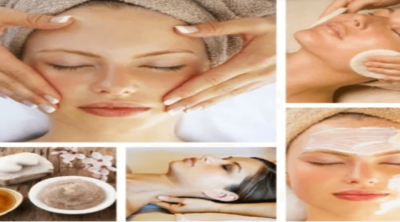
Fragrance allergies refer to the allergic reactions produced by the strong smell of certain products. The frequency of such allergies is increasing quite rapidly in the recent times. Find out more about this condition through this BeautiSecrets write-up.
An allergy or an allergic reaction can be considered a disorder of the immune system, where it becomes hypersensitive and perceives even harmless substances, like dust and pollen as foreign and harmful. In order to destroy such substances, the immune system attacks them by releasing chemicals like histamine.
Histamine is the chemical responsible for producing an allergic reaction, which can produce symptoms, like sneezing, nasal congestion, headaches, asthma, hives, and skin rashes. In some indiviuals, such symptoms can be triggered by perfumes or fragrances. This is known as fragrance or perfume allergy, where an allergic reaction is triggered by the strong fragrance of products like perfumes, soaps, detergents, candles, hair products, cosmetics, and skin care products.
Causes of Perfume allergy
Though most of us tend to blame the particular fragrance of a product for triggering an allergic reaction, many experts believe that the allergic reaction is actually caused by the chemicals used for producing the fragrance. So, some unscented products where a host of chemicals are used to mask the scent of the various ingredients, can also produce an allergic reaction.
However, it is very difficult to determine whether a particular or a combination of different chemicals found in such products are responsible for producing an allergic reaction. Many experts believe that some of the chemicals used in manufacturing scented products are irritants. So, one can develop skin rash, as well as breathing difficulty, due to the irritation caused by such chemicals, and not due to an allergic reaction.
Among the large number of chemicals used in perfumes and personal hygiene products, only a few have been suspected to be associated with allergies. Some of these chemicals are, cinnamon alcohol, cinnamon aldehyde, eugenol, isoeugenol, geraniol, alpha-amyl cinnamic alcohol, hydroxycitronellal, and oakmoss absolute.
These chemicals are mainly used in perfumes, deodorants, cosmetics, soaps, detergents, toothpastes, mouthwashes, colognes, personal hygiene products, and pharmaceutical creams and lotions. Even air fresheners can produce an allergic reaction in individuals who are vulnerable to respiratory diseases. In addition to these, chemicals like acetone, benzyl acetate, benzyl alcohol, benzaldehyde, camphor, ethanol, and ethyl acetate, may also cause irritation of the skin and the respiratory tract.
Symptoms of Perfume Allergy
The common symptoms produced by fragrance allergies are similar to the symptoms of a typical allergic reaction. So, one can experience sneezing, a runny nose, headaches, inability to concentrate, skin rash or hives, and eczema due to fragrance allergies. This condition can also cause nausea and dizziness, breathing difficulty, asthma-like symptoms, and irritation of the eyes and the nose. For some, these symptoms disappear once the particular smell or scent is out of range, while others are likely to experience more frequent, prolonged, and severe symptoms with each repeated exposure.
Though the symptoms of perfume allergy are similar to the symptoms of other common allergies caused by organic substances, like pollen and dander, experts think that considerable differences exist between these two types of allergies. In the case of common allergies, the immune system perceives the allergens as invaders, and so, releases chemicals to destroy them. These chemicals in turn, trigger an allergic reaction.
But the fragrant materials or products are not protein-based unlike common allergens, and they are also too minute to be detected by the body. But when they come in contact with the skin, they can modify the skin proteins by binding with them. The immune system mistakes such modified proteins for foreign substances. As a result, it attacks such proteins and produces an allergic reaction.
Along with perfumed products, many fragrance-free products can also produce an allergic reaction, as they often contain a number of chemicals in order to mask the scent of the various ingredients. Therefore, be sure to try any new product on a small patch of skin to see if it causes an allergic reaction. But if you are highly sensitive to perfumed products, it is better to visit a physician or a dermatologist to know more about this allergy, and the precautions that need to be followed in order to prevent its recurrence.
Disclaimer: This BeautiSecrets article is for informative purposes only, and should not be replaced for the advice of a medical professional.


